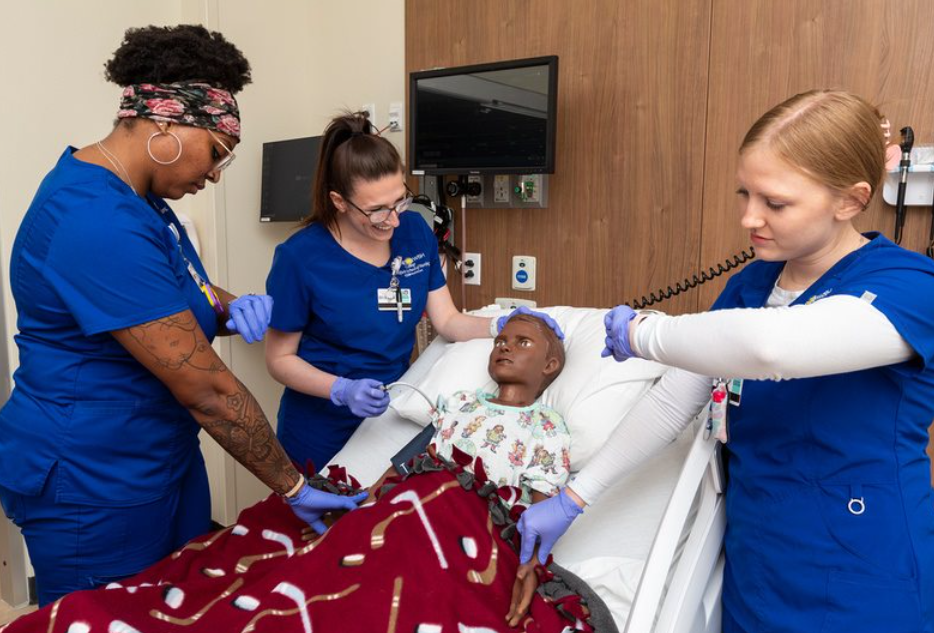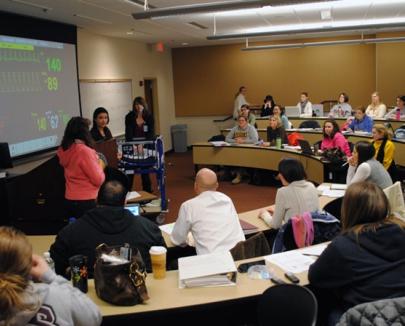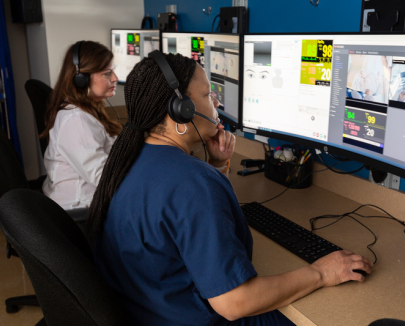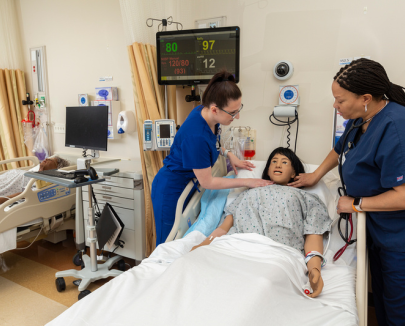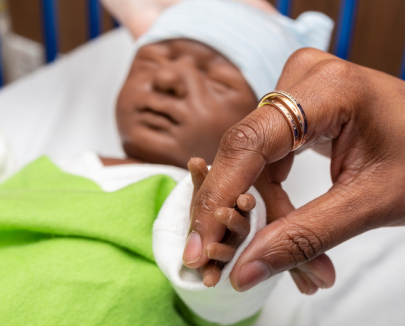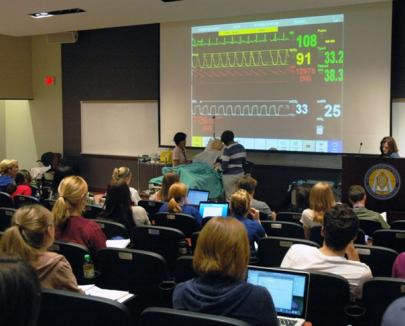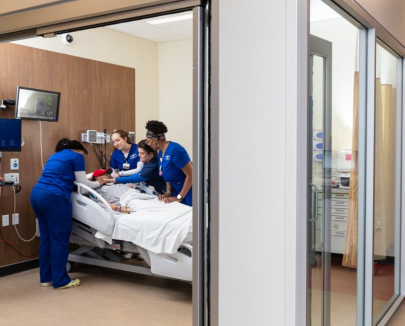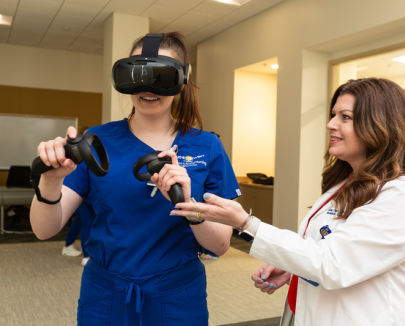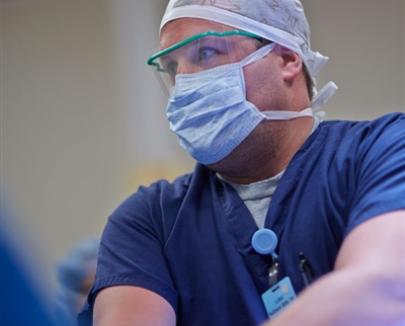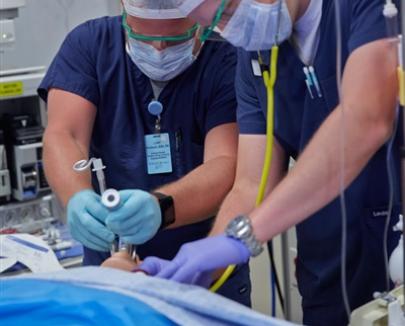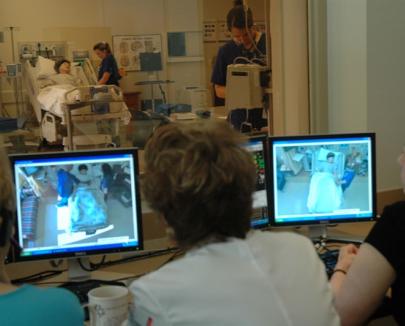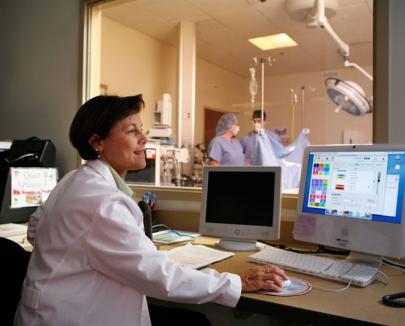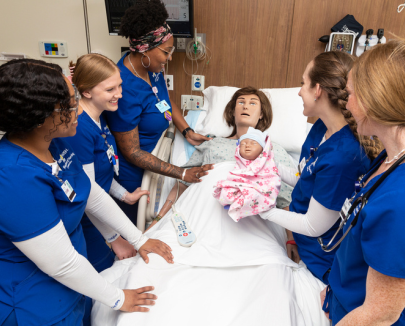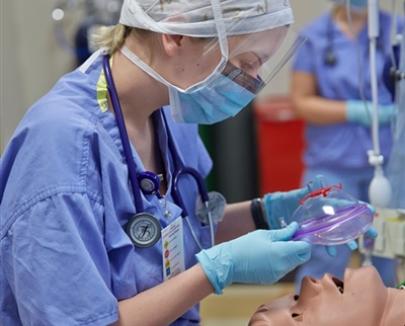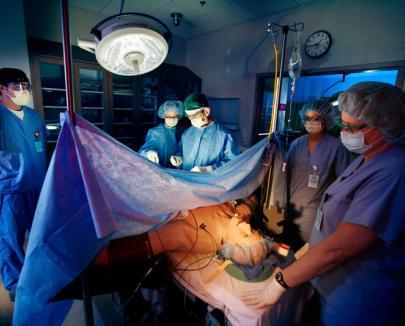Clinical Simulation
Positioned at the forefront of learning technology, Barnes-Jewish College Goldfarb School of Nursing is committed to investing in leading-edge clinical simulation labs that help students bridge the gap between coursework and clinicals.
Virtual Tour
View 360-degree photos of our expanded and modernized Clinical Simulation Institute that features state-of-the-art simulation labs and classroom environments.
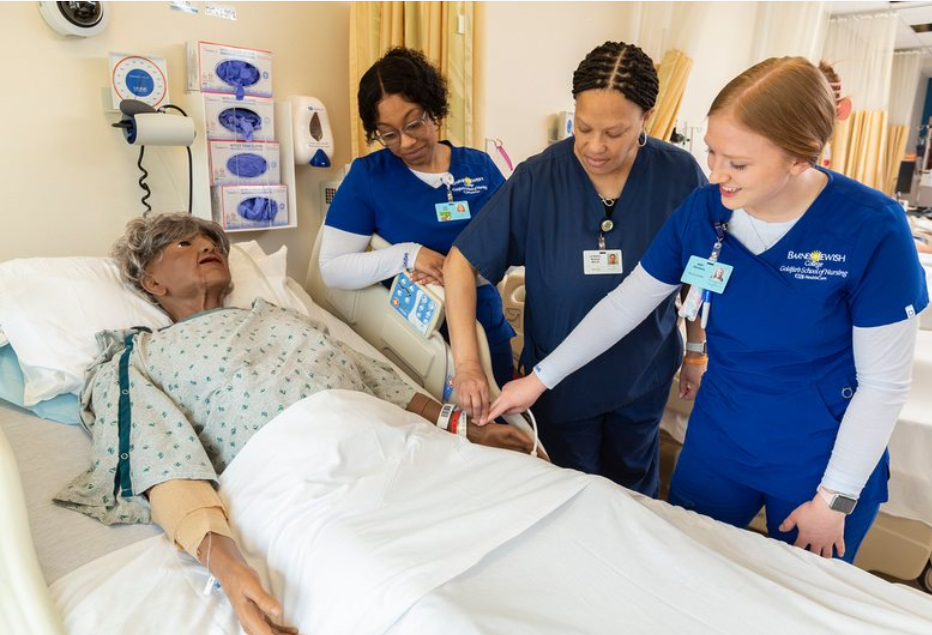
Real-World Experience in a Virtual World
Barnes-Jewish College Goldfarb School of Nursing is leading a technological transformation with its use of cutting-edge technology and hypothetical scenarios that prepare students for work beyond the classroom.
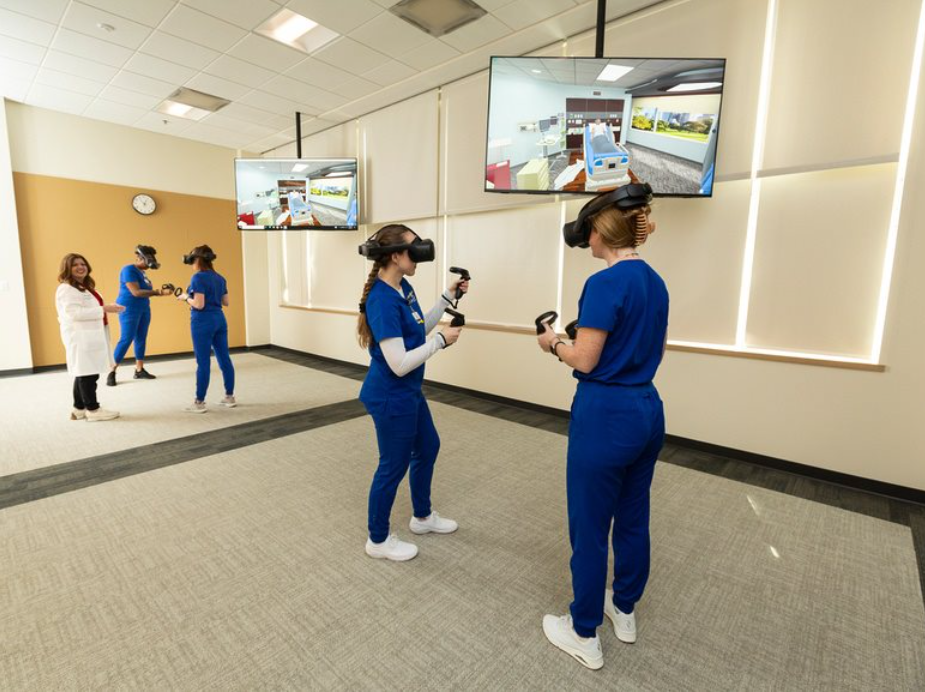
0
Patient Beds
0
Physical Assessment Lab Bays
0
Operating Room Suite
0
Simulated Hospital Rooms
0
Birthing Suite
0
Patient Exam Rooms
0
Virtual Reality Lab
0
VR/MR Headsets
0
Patient Simulators
Patient Safety
Our clinical simulation programs offer students a supportive learning environment where they put their knowledge and skills into action prior to clinical rotations. Through skills labs and live demonstrations, nursing faculty and simulation staff create a variety of complex and challenging scenarios that provide students with experiences they are likely to encounter in a live clinical environment.
They learn in a simulated clinical environment where mistakes can occur without adverse consequences to a live patient. Students learn to prioritize and delegate multiple patients with complex needs, collaborate within multidisciplinary healthcare teams and communicate with family members.
As students learn from their experiences, they develop increased competence and confidence, ultimately enhancing their ability to provide exceptional patient care.
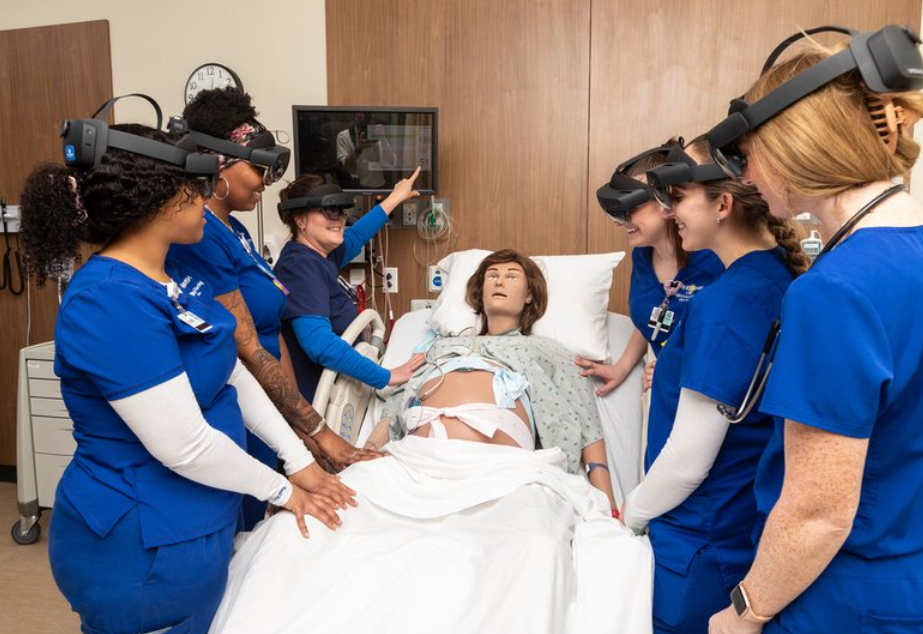
Diversity and Cultural Awareness
The Clinical Simulation Institute incorporates diversity and cultural awareness in its simulation programs. In different clinical scenarios, patient simulators are assigned a name, medical history and condition, as well as a particular religious and cultural background.
Faculty and staff develop various scenarios that allow students to identify and respect different cultural needs so they become aware of them once they start working with real patients. As a result, students become more knowledgeable in providing care to a diverse patient population.
